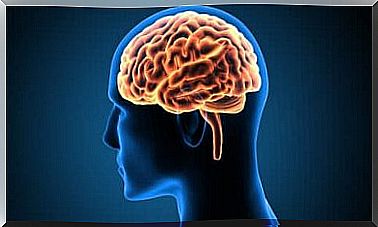My Family Doesn’t Know Who Noam Chomsky Is
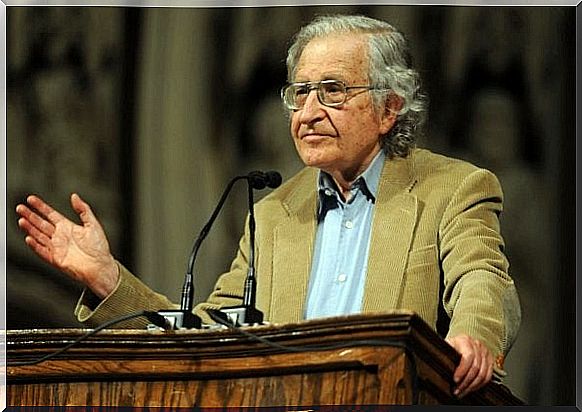
I was recently watching a movie in which there was a scene that caught my attention. A very unconventional family celebrated the birthday of Noam Chomsky. One of the children got very angry with the father for celebrating it. He said he wanted to celebrate Christmas like all the other kids. His father gave a stern answer to this: would you rather celebrate a fake magical elf or the birthday of a man who fights for human rights and understanding?
The poor boy couldn’t think of anything to support his wish to celebrate Christmas. This scene caught my attention not only because it discredits the beliefs of millions of people, but also because no one I watched the movie with knew who Noam Chomsky was. One of them even said, “Who is Noam Chomsky?”
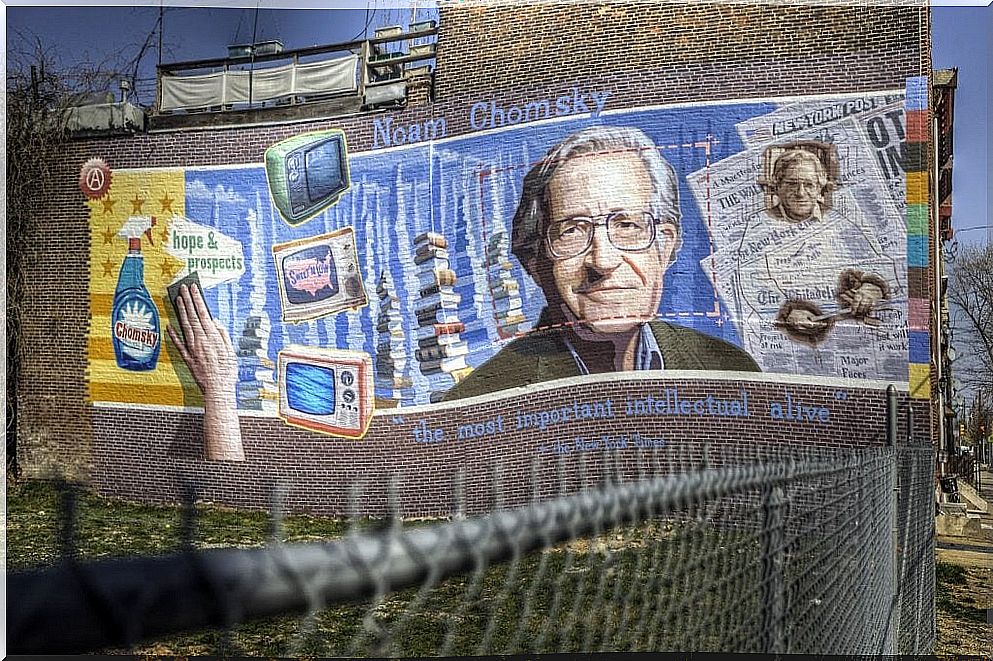
Contributions to Linguistics
Noam Chomsky is a leading linguist, philosopher, activist and political analyst. He is associated with the most radical and critical political movements in the United States. He is perhaps best known for his work in linguistics. He developed a theory about language acquisition that people have written hundreds of pages about.
Chomsky proposed that from the moment we are born, our brains have an innate ability to learn and use language almost instinctively. Many agree with him even today. In addition, it overturned all previous theories that language could only be acquired by learning it.
His theory assumed that universal grammatical principles exist for all languages. This explained how children can learn to talk so quickly. It also explains why all children actually go through the same phases when learning a language and why they make the same mistakes.
Political activist
Some people consider Chomsky to be the most important intellectual of our time. This is partly due to his work as an activist. Chomsky sees himself as an anarchist, especially in the tradition of anarcho-syndicalism, and is a strong supporter of civil disobedience. An example Chomsky uses to explain his positive attitude toward activism is this:
Imagine walking down the street at night. Suddenly you see someone being beaten up on the other side of the street. Without thinking about it, you walk towards the traffic light to help the victim. But the traffic light is red. What would you do?
Crossing while the traffic light is red is illegal. That means if you cross the road, you are breaking the law. However, if you don’t cross right away and wait for it to turn green, it may be too late for the victim.
The point of this story is that occasionally breaking the law can be a good thing. Acting outside the law can be positive as long as we do it for a good moral cause. In the example above, you would do it to help someone else. Chomsky thinks the government’s illegality doesn’t always match what people actually consider illegal.
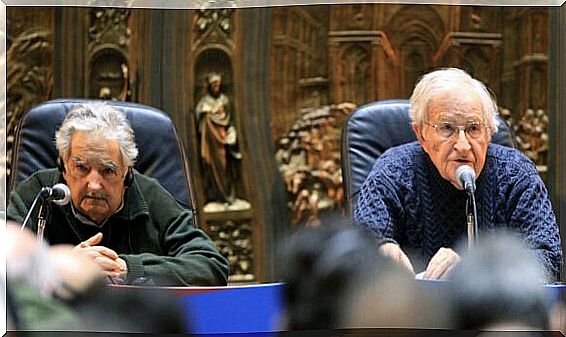
Noam Chomsky is a defender of human rights
In response to the Vietnam War, Chomsky embarked on a path to criticize the lack of democracy in countries such as the United States. He has always defended the lack of symmetry between public opinion and the decisions made by politicians. He supports the use of grassroots movements to pressure political power and bring about real change.
Although he also sees himself as a Zionist, Chomsky has also been critical of Israel. He still supports the kibbutz lifestyle as a social alternative. He was one of the leading proponents of the boycott of Israel, a movement driven by BDS (Boycott, Divest and Sanction). The movement is trying to put political and economic pressure on Israel to end this country’s pursuits.
The media and manipulation of the public
He also argues that everyone should participate in politics. Not just professionals such as journalists, intellectuals or politicians. One of his major contributions here is his analysis of the media. Here are some of his conclusions:
- The media diverts our attention from the important issues.
- The media will present us with an unacceptable way of doing things bit by bit so that we accept it without fuss.
- They will help people accept an unpopular decision by making it seem ‘painful but necessary’. That way they achieve a public acceptance that they can use later.
- They rely on the emotional factor to short-circuit people’s rational analysis and critical thinking.
- They spread the belief that it is fashionable to be stupid and uncivilized.
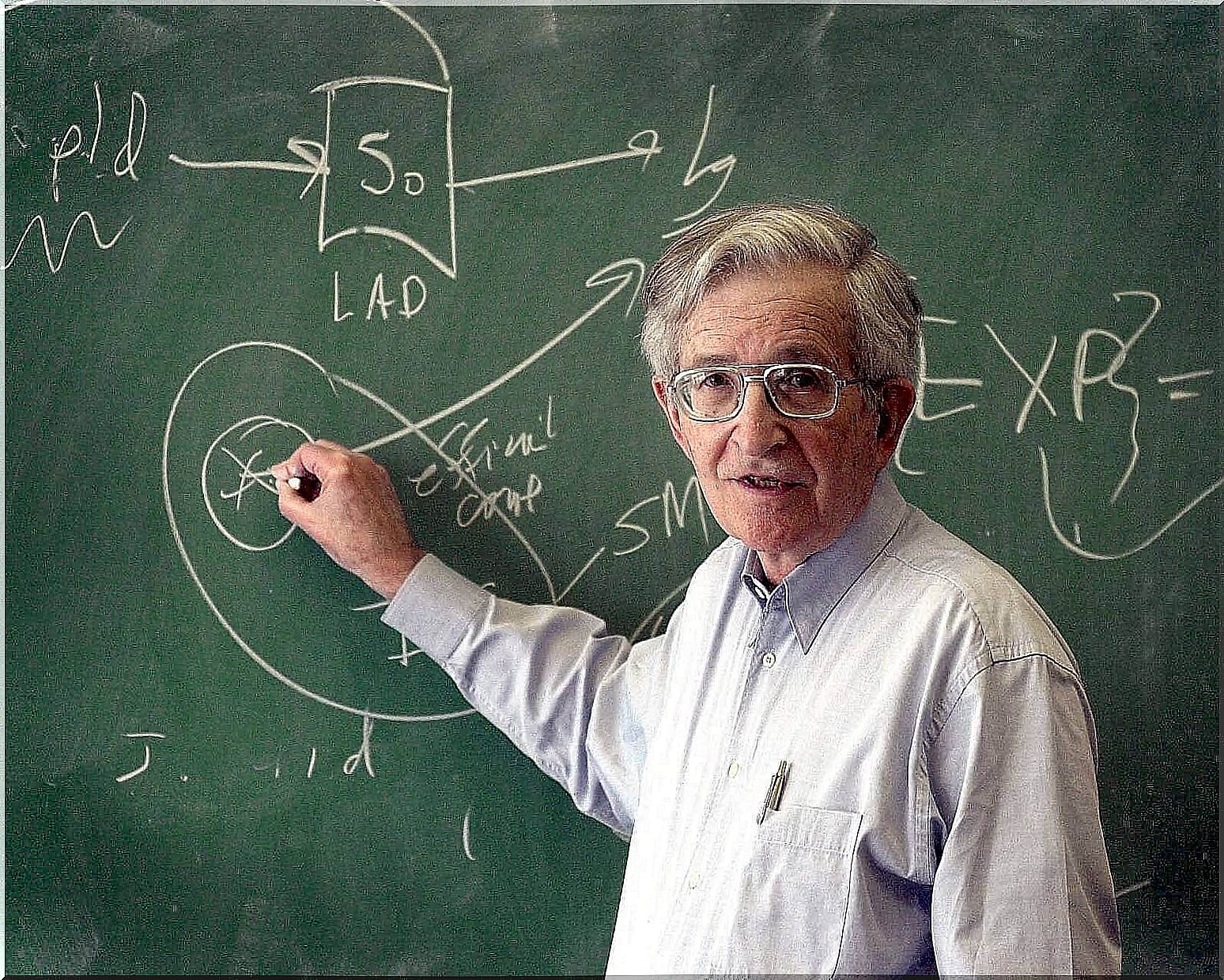
Now that you’ve learned a little more about Noam Chomsky, and you think it would indeed be important to celebrate his birthday, remember the date December 7th. As Chomsky said:
“If you assume there is no hope, you guarantee there will be no hope. If you assume that there is an instinct for freedom, that there are opportunities to change things, then there is a possibility that you can contribute to a better world.”

